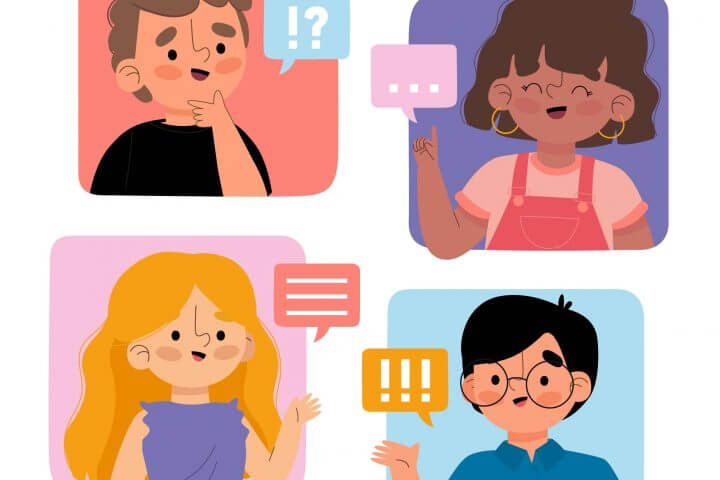The biggest recent development in language learning is by far the introduction of the language learning app.
Easily installed on your cell phone, the language learning app allows you to practice whatever language you want, whenever you want. To make language learning fun and engaging, app developers have added video-game features, such as trophy boards, rewards for reaching intermediate goals. Apps are video games – every touch of the screen causes words to light up and chimes to go off. If you were to see someone studying German on Babel, you might be forgiven for thinking they were playing Candy Crush and not learning the difference between the dative and accusative.
When you study for a few days in a row, the system sends you an encouraging email – You’re on a streak! When your practice flags, it sends you a reminder that it has been a few days. Or, “Remember that to learn a language, you need to be consistent.”
In a way, these apps are not so new. Back in the day, when people wanted a fast and easy way to learn a foreign language, they bought a language learning kit. When Holly Go Lightly (the flighty and flaky heroine from “Breakfast at Tiffany’s”) decides to learn Portuguese to pursue her Brazilian love interest, she buys a vinyl album that teaches her phrases like, “I do believe you are in league with the butcher.” Growing up, I would see Berlitz books in people’s bookshelves and flip through the pages to be struck by the sheer randomness of the sentences. “Excuse me, where is the post office?” immediately followed by “Perhaps we should stay a while longer.”
The appeal of language learning apps is their relative inexpensiveness compared to what they promise. Learn a language for twelve dollars a month?! What a deal! A momentous achievement for such a paltry investment. Convenience is another selling point. Study whenever you want! Listen to audio files while you are in the car. Practice on your app while sitting in the doctor’s office. And finally, the appeal is that it seems fun and not like school.
These apps truly are very cleverly made and are certainly useful. I myself have used them and found them of some value.
And I am not saying that apps are a problem. The problem is the unrealistic expectations that we have of them. Learning to speak a foreign language is a huge undertaking – more akin to learning to play a musical instrument, gaining proficiency in Yoga, shedding ten pounds or preparing for a long-distance run.
Furthermore, the hardest part of learning a foreign language is not remembering conjugations or the correct vocabulary or even having a brief conversation with someone in the language – it’s staying motivated and not giving up before you see the results of your labor. Just when you are feeling discouraged and confused is probably when you are on the verge of a breakthrough.
This is why I feel it is important for most of us to have an actual language instructor. A good language teacher senses your mood, has seen the problem before, and gives you the encouragement you need to keep going and muscle through the difficulty. “Màn màn lai,” my teacher tells me when I am getting frustrated with Chinese. “Take it easy!”
I would submit that an algorithm does not know how to do that!
At Ciao Languages, though, we try to give you the best of both worlds. When students enrol, we give them a subscription to Mango Languages language learning app, for free! The application is great! And during our live online lessons our native speaking teachers give you the context and practice you need to actually speak the language.
Plus, when you get frustrated, we help you put everything in perspective and little by little, you will delight in the use of your newfound skill. The mountain is tall and will be climbed, one step at time. And Ciao Languages will help you get there!
Contact us today for a free consultation!
Quote Request
Contact us immediately for a quote.




